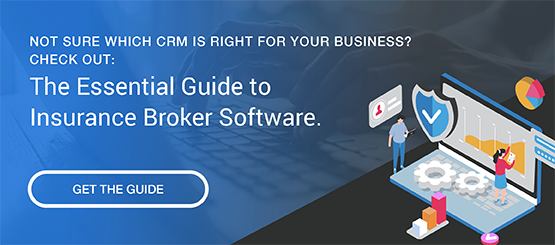
For health insurance agents, the job is not just about selling – it’s also about providing an essential service to consumers. Unlike other types of insurance products that are focused purely on asset protection, the health sector helps ensure quality of life and wellbeing.
To do your job well as a health insurance agent, you need to be an advocate and ally for your insurance clients. In addition to insurance selling strategies, insurance agents can use the following tips to position themselves as strategic consultants.
Always Be Helping
As an insurance consultant, your job is to help people. As well as offering advice, you must always be offering a solution to the problems presented by customers. When it comes to customer care, no challenges should be too complex for a seasoned consultant to handle.
The best health insurance agents are those who have a deep understanding of the needs of their clients, their health concerns, and other life factors that can play a role in insurance policy needs and decision-making, such as aging into Mmedicare or parents who need pediatric specialists for their children.
Health insurance, however, is complicated stuff and clients may not be aware of all of the insurance options available to them. By asking questions about family needs, income, and other factors, an insurance broker can offer guidance on health coverage that meets the client’s needs and budget.
A health insurance agent should know the basic information about their insurance business and the coverage they are appointed by different carriers to sell. You should also be able to communicate that information to the clients.
Working Through Pain Points
Insurance agents need to be able to do their job without the client feeling sidelined or not heard. When the client is voicing their needs, turn up the volume on your active listening ears.
Insurance agents should know how to position themselves as experts in their field. This requires them to understand the needs of their insurance clients, which can be done by asking questions, listening attentively, and even picking up on non-verbal cues.
When you face pushback or resistance from a client, stop long enough to hear what they’re saying, and if you’re unclear at all, ask them to clarify their answers. Only by truly understanding the problem are you able to offer a right-fit solution.
Moreover, don’t just just listen and take notes. Learn to read your insurance prospects’ and clients' signals and use that information in overcoming objections that get in the way of the goal: signing the bottom line on a health insurance policy that meets your client’s needs.
Invest in the Right Insurance Tools
Some marketing gurus and communication experts contend that business owners who use social media strategically tend to have deeper customer relationships. Channels like Facebook, Twitter, and Facebook offer great platforms to communicate reminders about upcoming open enrollment periods as well educate prospects and clients about health coverage options available to them.
However, social media is only part of the equation when it comes to helpful tools. It's also advisable to utilize insurance technology for increased efficiency, whether it’s quoting multiple health policies in minutes, whipping up a good-looking health insurance proposal in seconds instead of days, or sending set-it-and-forget-it policy renewal reminders. With the right tools, you can easily work insurance leads and help manage existing client relationships, freeing up time to focus on other aspects of your business in the process.
Communicate Effectively
One of the biggest challenges an insurance agent faces is the need for constant communication with potential insurance clients. It means that an insurance agent should always be available and able to respond to queries from clients.
However well meaning, though, no single person can be available 24 hours a day, seven days a week.
Digital insurance tools such as live chats and autoresponders on their websites. This means that even when the agent is not on call, they can offer a sense of immediacy and timely responses to questions from clients.
-1.png?width=1920&height=1200&name=QT-Logo-Big%20(1920)-1.png)



